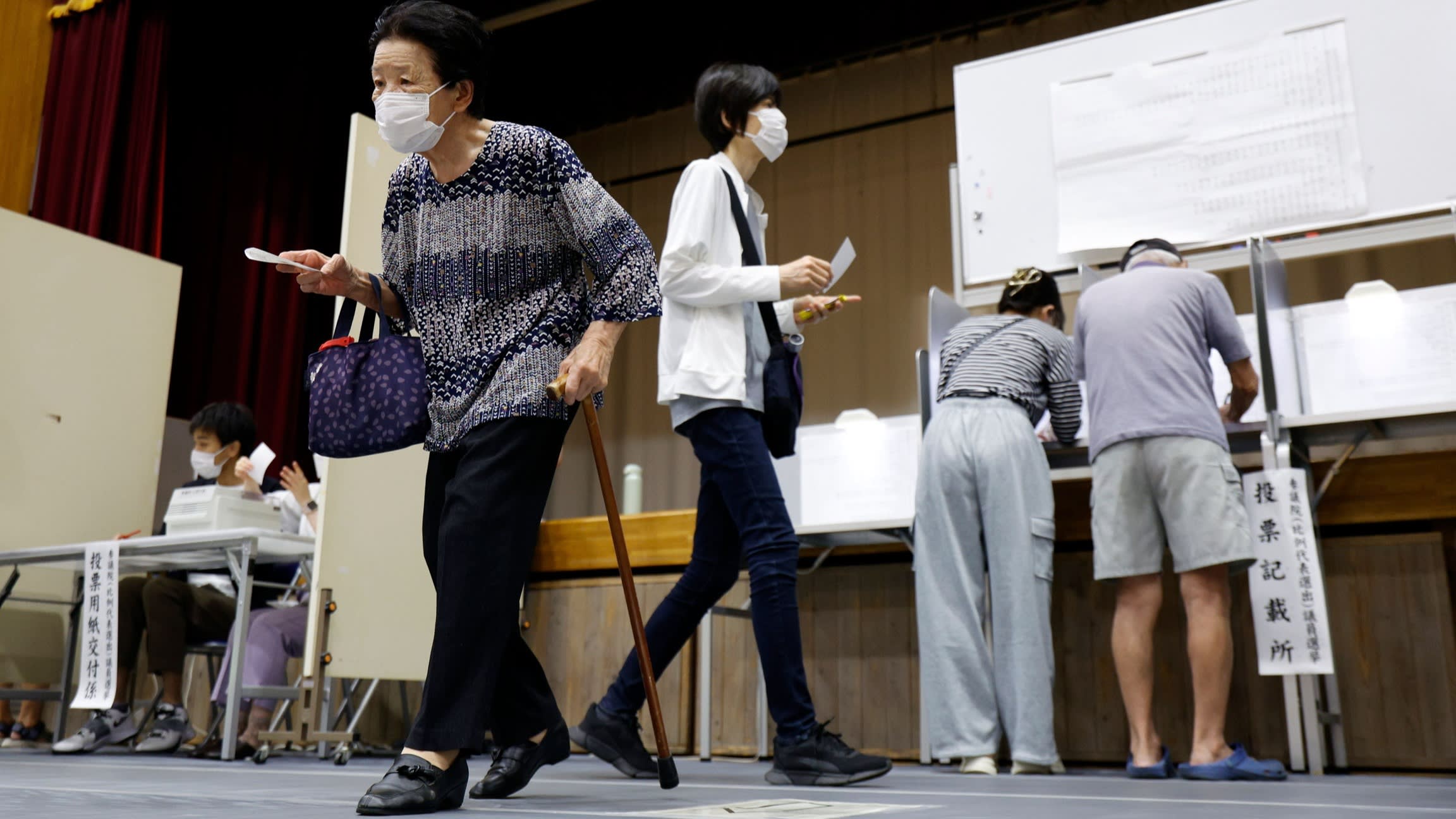
Unlock the Editor’s Digest for free
Roula Khalaf, Editor of the FT, selects her favourite stories in this weekly newsletter.
Japan’s ruling bloc is girding itself for a backlash and the loss of its majority in both houses of parliament in an election that opposition parties have made a referendum on inflation, immigration and the leadership of Prime Minister Shigeru Ishiba.
An exit poll published after voting ended in Sunday’s election for just over half the seats in the country’s upper house of parliament suggested that the ruling Liberal Democratic party and its coalition partner, Komeito, would lose their combined majority.
If the loss of seats is heavy, say ruling bloc politicians, Ishiba will come under pressure to resign, setting up a leadership race within the LDP, which still maintains fragile control over the more powerful lower house.
Advances for smaller parties, which appeared likely according to the exit poll conducted by Japan’s state broadcaster NHK, would add to the turmoil, forcing the LDP bloc to seek wider partnerships to continue governing.
The coalition requires 50 seats to remain in outright control of the 248-seat upper house but was forecast by exit polls to secure between 32 and 51.
Yu Uchiyama, a political scientist at the University of Tokyo, said the voting appeared to show voters making a strong judgment against Ishiba, and punishing the LDP’s handling of the rising cost of living.
“The government insisted on cash handouts. The opposition campaigned for a reduction of consumption tax. The tax idea was more appealing to voters,” said Uchiyama, who added that the expected gains for the populist Democratic Party for the People and far-right Sanseito parties showed that both had been more effective users of social media than the incumbents.
“A shock would be good for the LDP. Japanese people have always wanted things to be stable, and the LDP have taken advantage of that for too long,” said Kenichi Moribe, a voter in his seventies heading to a polling station in Tokyo’s Setagaya ward.
The level of public interest in the upper house election is unusually high and campaigning — particularly by a number of small, radical and in some cases overtly xenophobic parties — has been unusually intense.
A record 21.5mn voters cast their ballots in early voting and polls last week suggested that overall turnout would be high for an upper house election. Populist campaigning has included pledges of significant tax cuts.
Junko Matsuo, a 67-year-old part-time midwife, said it was 20 years since she last voted. She was galvanised by seeing how difficult life was after her daughter became a single mother and moved in with her last year.
Matsuo said she would vote for the Sanseito, which has weaponised the rising cost of living and the influx of foreign workers against the incumbent LDP.
“The future isn’t looking good and I want to see what change is like. When I look back on this year, I think that politics needs to take more interest in the future of 40-year-olds and four-year-olds and must transform.”
Some polls predict the Sanseito party, which was widely considered a fringe movement in previous national elections, will be a big winner in Sunday’s election, which allots victories both in single seat races and by proportional representation.
One of the earliest seats to be called by Japanese media on Sunday night was for Sanseito’s Saya Ohgi, a jazz singer who was standing in Tokyo and campaigned prominently on the “Japanese first” slogan that has become her party’s catchphrase.
Minami Asano, 77, a judicial scrivener in Niigata city and a longtime LDP supporter, switched his support to Sanseito arguing that neither the LDP nor the largest opposition Constitutional Democratic party were worth voting for.
“I want future politicians to protect the foundations of Japanese culture, land and the nation. I want politics that will protect the country, not just prices, but will properly preserve Japan. Protecting Japan’s assets, such as territory, airspace, people and land. Sanseito’s policies are close to that,” said Asano.
Several people approached by the Financial Times at polling stations in Tokyo said the rising cost of food was a factor in their voting, but that it was up to the electorate to be serious about picking a party that could work in credible partnership with the LDP. Sanseito, said Hidetoshi Tase, a 55-year-old lawyer, was just a fad.
One 65-year-old part-time sales representative at an IT company, who was voting in Yokohama, said he was supporting the LDP for the first time, on the basis that the tax cuts being suggested by opposition parties were unrealistically large.
“In the future, politics should not be about populism and saying only good things. What is important for Japan right now is that we need to get our finances in order, as we are so deeply in debt,” he said.


